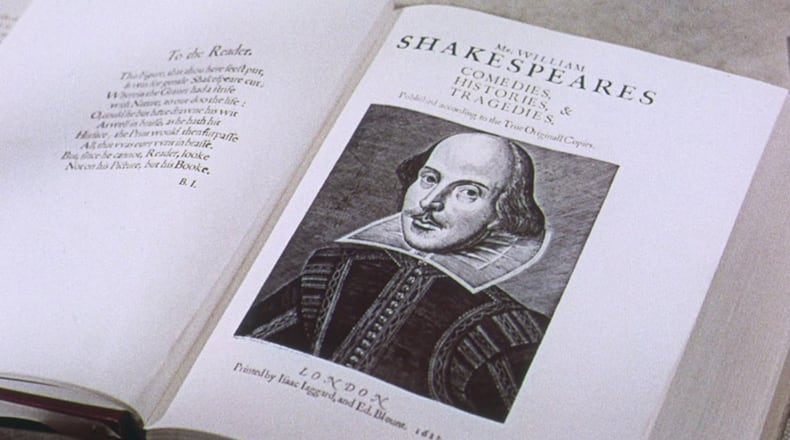Mark Bauerlein is a professor emeritus of English at Emory University and an editor at First Things magazine. In this guest column, Bauerlein critiques the state’s proposed new standards to guide the teaching of English Language Arts in the state’s public schools.
By Mark Bauerlein
The Georgia Department of Education has issued a new set of English Language Arts standards for public comment (go here to give feedback).
The document is exactly what we’ve come to expect from educationists and state bureaucrats: a bunch of basic verbal skills dressed up in pseudoscientific language, while the traditional content of English, the literary-historical knowledge that kids used to acquire in high school — some Shakespeare, the Great American Novel, etc.— is nowhere to be found.
As reading scores decline, more grads go to college and end up in remedial courses, and leisure reading virtually disappears among young adults, we may lay part of the blame on projects such as this one, which turn the field into such a tedious, vacuous exercise.
Credit: Contributed
Credit: Contributed
If you go to the grades 9-12 strand, you find the skills emphasis up front and detailed at length. Nothing wrong with grammar and usage, of course, so long as the guidance keeps things simple and concrete. Here, the approach amounts to an abstract and deadening stage-management of teachers and students both.
Example: Under the unobjectionable “BIG IDEA” that “Students apply conventions of usage to achieve clarity and enhance the meaning of written texts,” we have the following “Expectation” for 12th grade:
Apply understanding of syntax to make meaning with and to create complex disciplinary and technical texts.
What in the world does that mean? The more I read that sentence, the less I am sure.
How about this 11th grade “Expectation” under the general heading “Students engage in processes to guide the exploration and creation of texts”:
Utilize divergent and convergent thinking processes (independently or collaboratively) to generate multiple ideas, narrow focus, and refine text creation.
Is this just another way of highlighting brainstorming, coming up with a thesis for a paper and gathering relevant evidence? I think so, but the crafters of the document don’t put it that way. They want to sound like experts.
Another example: They don’t just ask students to do word etymologies. They have to say, “Deconstruct words using common root words and affixes from other languages,” because “deconstruct” has the force of disciplinary sophistication.
This inflation of reading and writing into hifalutin theory talk runs throughout. Phrases such as “Experiment with various processes for text development,” “Produce or adapt accessible, technology-based experiences,” and “Determine influencers of text, including ‘invisible’ commercial influences” pop up again and again.
It isn’t enough for the crafters to tell students to read texts carefully and interpret them accurately, nor do they leave the specifics of that task to the teachers. Instead, they break reading up into dozens of sub-tasks and describe them in abstract idiom (“Identify advantages and limitations of mode choice,” “Collaboratively develop and use communication norms,” etc.).
I can imagine English teachers in Georgia scanning this document with an extended “Uuuuuugh.” They’ve heard it before, and it hasn’t helped their practice. To those in the trenches trying to get 16-year-olds off the phone and onto “The Autobiography of Malcolm X,” it can only sound bloated and academic.
There is more to this grandiose verbiage than a group of practitioners from one of the less respected parts of higher education trying to show their scientific cred, though. The overwrought advice is also an attempt to make up for what English has lost.
I mean the literary-historical material mentioned above. In the old days, English meant grammar and usage, yes, but also the best writers of it, Shakespeare, Austen, Melville, and the rest. That was the knowledge students were to gain. Learn some of the greats, perform “Romeo and Juliet,” and memorize “Friends, Romans, countrymen.” I read “Invisible Man” in 11th grade, and it stuck with me for a long time. “The Scarlet Letter” bored lots of juniors to death, but it was standard fare, an important part of the American past. “Oliver!” was a Broadway and Hollywood hit, and “Oliver Twist” a common assignment. Behind those readings was an idea of tradition, a lineage and a heritage that English contained and imparted.
That obligation has retired. The new standards prove it. There is but one nod in that direction, and it’s so vague as to have no impact:
Apply knowledge of historical, disciplinary, and other circumstances to make meaning of author’s experiences and to interpret their texts.
Nothing systematic about that, no demand that students study Romanticism or Modernism, just a gesture that enables teachers to dig here and there into an author whom they love.
The result of this proposal is a classroom with no sense of the past, no search for genius and greatness, no American or English inheritance for youths to claim as their own. Yes, we want high schools to produce competent readers and writers, but we also want to lift up their hearts and minds with the most eloquent, moving, witty, and incisive users of the language over the centuries.
According to these ELA standards, the discipline has moved on from that ambition. The crafters are not interested in the satire of Swift or the insight of Emily Dickinson. Instead, let’s teach students to “use organizational structures to shape thoughts” and “evaluate personal process for text conception.” What a loss.
About the Author
The Latest
Featured




